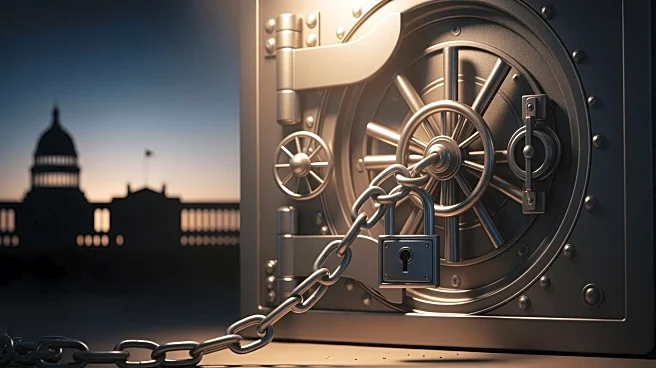What's Happening?
The U.S. government shutdown has reached its 24th day, leaving close to 1.5 million federal workers without pay. The Senate recently blocked two bills aimed at addressing the issue. The Republican bill proposed paying federal employees who are still working,
while the Democratic bill sought to pay all federal workers, including those furloughed. The shutdown has led to significant financial strain for many workers, with some resorting to loans and hardship withdrawals from retirement accounts. The economic impact is beginning to affect local businesses, particularly those near federal buildings, as foot traffic decreases.
Why It's Important?
The prolonged government shutdown is causing widespread financial distress among federal employees and is beginning to ripple through the broader economy. As federal workers struggle without pay, local businesses are experiencing reduced customer activity, which could lead to broader economic consequences if the shutdown continues. The political stalemate in the Senate highlights the deep divisions between parties, complicating efforts to resolve the situation. The shutdown's impact on federal operations and services could have long-term implications for public trust in government institutions.
What's Next?
If the shutdown persists, the economic effects are expected to intensify, potentially leading to more significant disruptions in communities reliant on federal workers. Political leaders may face increasing pressure to negotiate a resolution, but the current impasse suggests that a quick solution is unlikely. The situation may prompt further legislative attempts to address the financial needs of federal employees, though success will depend on overcoming partisan disagreements.
Beyond the Headlines
The ethical implications of the shutdown are significant, as it raises questions about the government's responsibility to its employees and the public. The situation underscores the challenges of governance in a polarized political environment, where essential services and workers become collateral damage in broader political battles.















